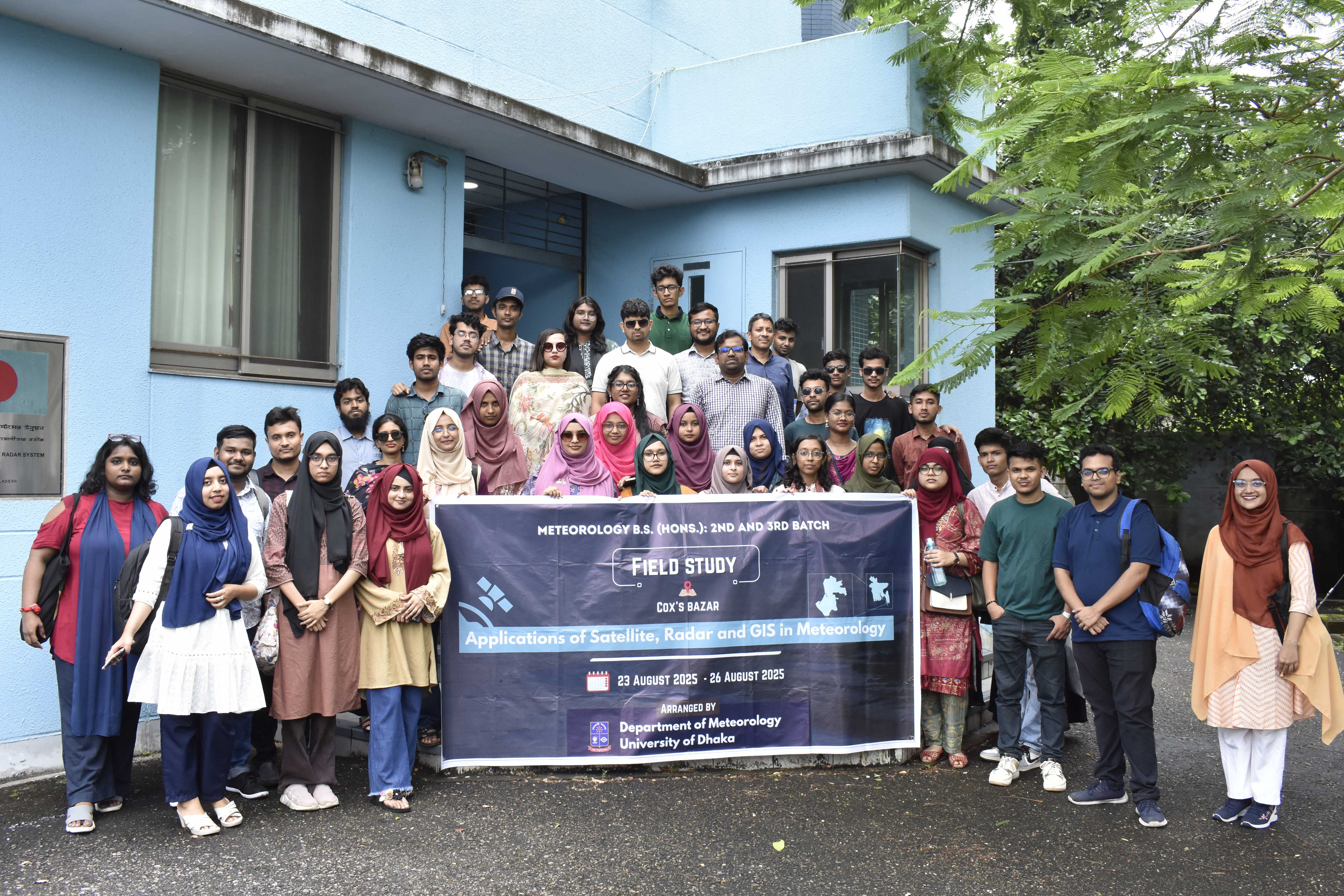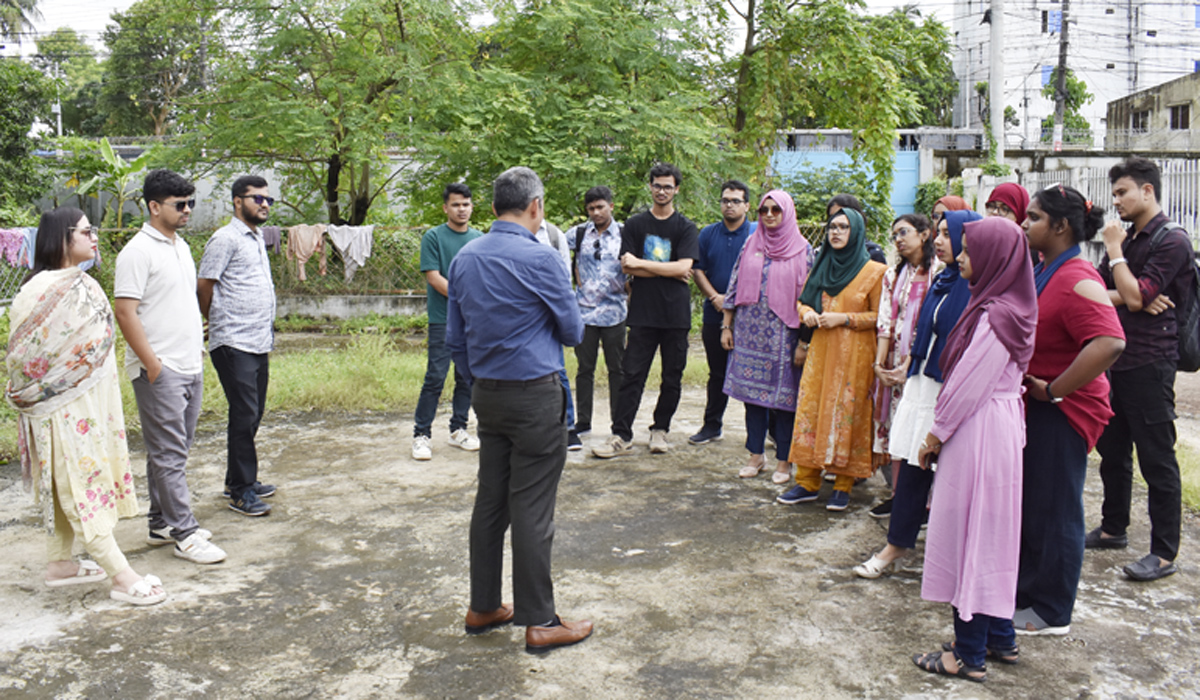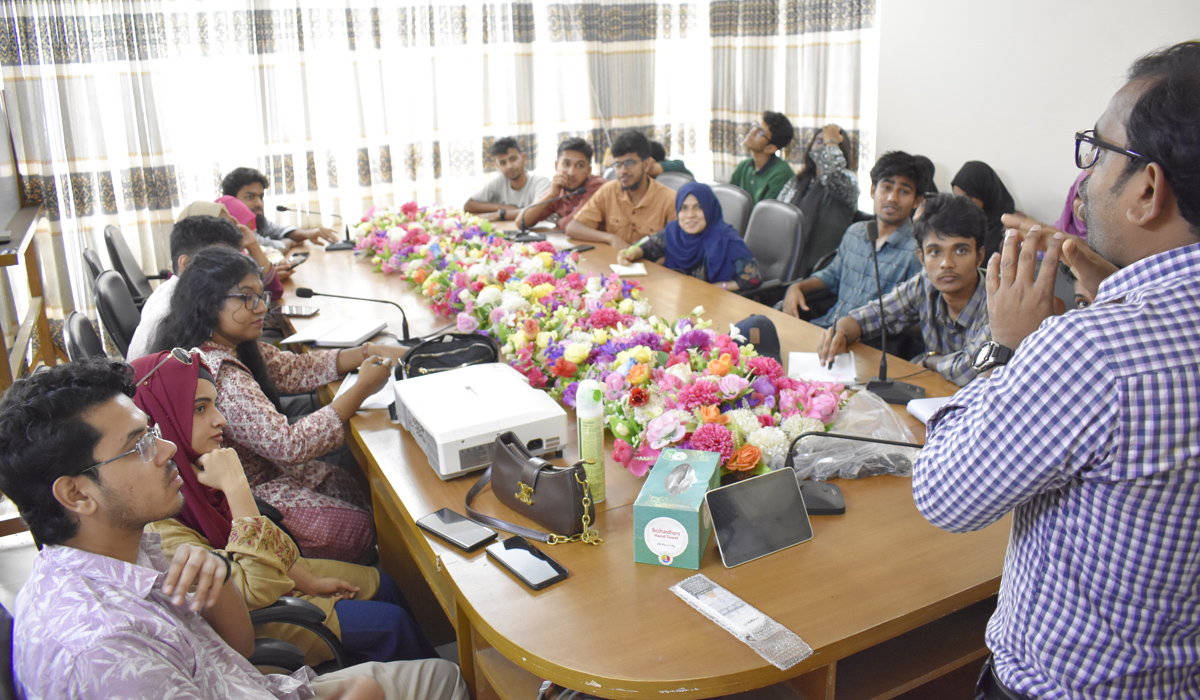
Joint Field Study at Cox’s Bazar: Exploring Coastal Meteorology, Radar, and Remote Sensing
The students of both the 2nd and 3rd batches of the Department of Meteorology, University of Dhaka, recently undertook an academic field trip to Cox’s Bazar during the peak of the monsoon season. This joint initiative provided a unique opportunity for participants to engage in hands-on learning that combined advanced meteorological techniques, coastal observations, and real-world research applications.

2nd Batch: Radar & Satellite Meteorology in Action
As part of their BS Hon’s 3rd Year program, the 2nd batch focused on Radar and Satellite Meteorology with a special emphasis on coastal weather observation and monitoring.
-
Day 1 included interactive sessions on satellite data (INSAT-3D/3DR, Himawari, GPM, MODIS/VIIRS), field visits to the BMD Cox’s Bazar Observatory and Doppler Weather Radar, and on-site cloud and rainfall monitoring.
-
Day 2 featured integrated research activities combining radar, satellite, and ground-based observations, with students presenting their findings in the evening.
This segment of the program allowed students to bridge theory with practice—analyzing monsoon systems directly in the field while developing technical and analytical skills.

3rd Batch: Remote Sensing & Coastal Microclimate
Simultaneously, the 3rd batch conducted their fieldwork under the course METLB 212 (Remote Sensing and Field Techniques), with the theme:
“Coastal Land Surface Characterization and Microclimate Estimation through SAR-based Indices and Downscaled Thermal Data Using Google Earth Engine.”
-
Students surveyed diverse coastal landscapes—beaches, vegetation, urban zones, and bare soils—to collect ground-truth data for remote sensing validation.
-
A highlight was the visit to the Meteorological Department office and radar station, where participants gained exposure to operational meteorology and its role in coastal forecasting and disaster preparedness.
A Shared Vision for the Future
Together, the two batches showcased the diverse yet interconnected dimensions of meteorology—from satellite-based weather analysis to remote sensing of land surfaces. The trip not only enhanced technical expertise but also nurtured scientific curiosity and a deeper understanding of Bangladesh’s coastal environment.
The Department of Meteorology remains committed to organizing such immersive learning experiences, enabling students to connect classroom knowledge with the challenges and opportunities of the real world.